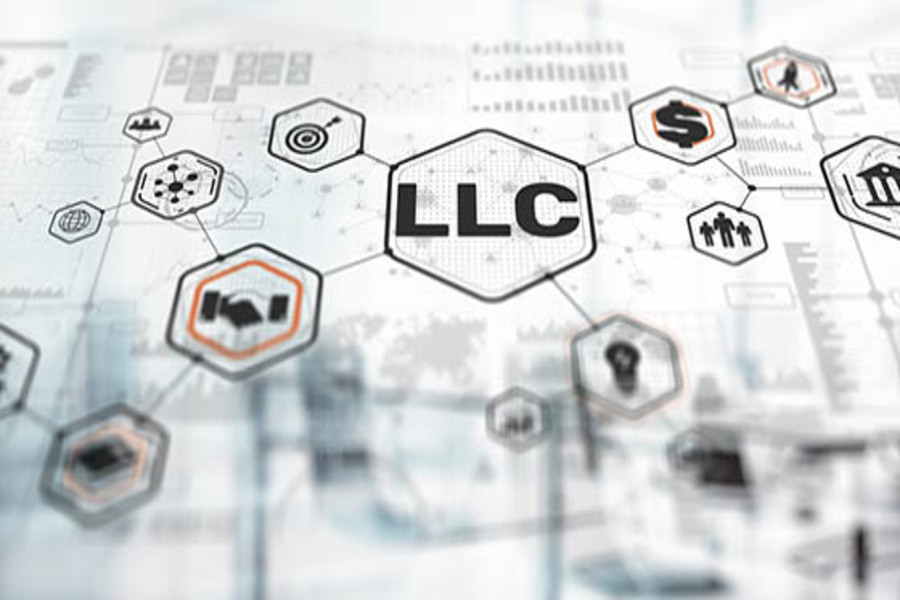When drafting partnership and LLC operating agreements, various tax issues must be addressed. This is also true of multi-member LLCs that are treated as partnerships for tax purposes. Here are some critical issues to include in your agreement so your business remains in compliance with federal tax law. Identify and describe guaranteed payments to partners For income tax purposes, a guaranteed payment is one made by a partnership that’s: 1) to the partner acting in the capacity of a partner, 2) in exchange for services performed for the partnership or for the use of capital by the partnership, and 3) not dependent on partnership income. Because special income tax rules apply to guaranteed payments, they should be identified and described in a partnership agreement. For instance: The partnership generally deducts guaranteed...

Manufacturers are as varied as the products they make. They come in different sizes and specialties. So no universal formula applies when determining their value. Instead, a business valuator must fully understand the subject company’s operations to arrive at an accurate value conclusion. Here’s a closer look at seven factors that affect value in the manufacturing sector: 1. Financial performance. Regardless of the subject company’s industry, value is largely driven by financial health and stability. Income statements provide insights into historical revenue trends, profit margins and cost structures. Valuators also analyze balance sheets and cash flow statements. Key metrics that are considered include liquidity ratios, debt levels, and sources and uses of operating cash flows. A strong financial position may demonstrate that a company invests in growth...
Electric vehicles (EVs) have become increasingly popular. According to Kelly Blue Book estimates, the EV share of the vehicle market in the U.S. was 7.6% in 2023, up from 5.9% in 2022. To incentivize the purchase of EVs, there’s a federal tax credit of up to $7,500 for eligible vehicles. The tax break for EVs and fuel cell vehicles is called the Clean Vehicle Tax Credit. The current version of the credit was created under the Inflation Reduction Act. Here are answers to some frequently asked questions. Which vehicles qualify for the credit? To qualify for the full $7,500, there are several requirements. For example: The vehicle must be a new plug-in electric or fuel cell vehicle. It must have a battery capacity of at least seven kilowatt...
With Labor Day in the rearview mirror, it’s time to take proactive steps that may help lower your small business’s taxes for this year and next. The strategy of deferring income and accelerating deductions to minimize taxes can be effective for most businesses, as is the approach of bunching deductible expenses into this year or next to maximize their tax value. Do you expect to be in a higher tax bracket next year? If so, then opposite strategies may produce better results. For example, you could pull income into 2024 to be taxed at lower rates, and defer deductible expenses until 2025, when they can be claimed to offset higher-taxed income. Here are some other ideas that may help you save tax dollars if you act soon. Estimated...
Your business probably has a disaster plan — or a set of procedures for dealing with a fire, natural disaster, terrorist attack or other emergency that could disrupt operations and threaten lives. Although a fraud contingency plan probably isn’t as critical, it’s still important for most companies to have one. Here’s how to draft and put a fraud contingency plan in place. Where are your weaknesses? Start by meeting with your senior management team and financial advisors to devise as many fraud scenarios as you can dream up. Consider how your internal controls could be breached — whether the perpetrator is a relatively new hire, an experienced department manager, a high-ranking executive or an outside party. Next, decide which scenarios are most likely to occur given such factors...
Choosing the right business entity is a key decision for any business. The entity you pick can affect your tax bill, your personal liability and other issues. For many businesses, a limited liability company (LLC) is an attractive choice. It can be structured to resemble a corporation for owner liability purposes and a partnership for federal tax purposes. This duality may provide the owners with several benefits. Like the shareholders of a corporation, the owners of an LLC (called members rather than shareholders or partners) generally aren’t liable for business debts except to the extent of their investment. Therefore, an owner can operate a business with the security of knowing that personal assets (such as a home or individual investment account) are protected from the entity’s...
A recent U.S. Supreme Court ruling resolves a circuit split on a business valuation issue — and it could have a major impact on the value of many closely held companies going forward. In Connelly v. IRS (144 S. Ct. 1406, 2024), the Court held that corporate-owned life insurance (COLI) designed to fund the redemption of a deceased shareholder’s stock under a buy-sell agreement should be considered a corporate asset when calculating the value of the decedent’s shares for purposes of the federal estate tax. Here’s a summary of the case and how it may affect owners of other private companies. IRS challenges estate’s valuation Two brothers co-owned a building supply company. They entered into a buy-sell agreement to ensure that the business remained in the family if...
Believe it or not, there are ways to collect tax-free income and gains. Here are some of the best opportunities to put money in your pocket without current federal income tax implications: Roth IRAs offer tax-free income accumulation and withdrawals. Unlike withdrawals from traditional IRAs, qualified Roth IRA withdrawals are free from federal income tax. A qualified withdrawal is one that’s taken after you’ve reached age 59½ and had at least one Roth IRA open for over five years, or you are disabled or deceased. After your death, your heirs can take federal-income-tax-free qualified Roth IRA withdrawals, with proper planning. A large amount of profit from a home sale is tax-free. In one of the best tax-saving deals, an unmarried seller of a principal residence can exclude...
Having a high income may mean you owe two extra taxes: the 3.8% net investment income tax (NIIT) and a 0.9% additional Medicare tax on wage and self-employment income. Let’s take a look at these taxes and what they could mean for you. 1. The NIIT In addition to income tax, this tax applies on your net investment income. The NIIT only affects taxpayers with adjusted gross incomes (AGIs) exceeding $250,000 for joint filers, $200,000 for single taxpayers and heads of household, and $125,000 for married individuals filing separately. If your AGI is above the threshold that applies ($250,000, $200,000 or $125,000), the NIIT applies to the lesser of 1) your net investment income for the tax year, or 2) the excess of your AGI for the tax...
Partnerships are often used for business and investment activities. So are multi-member LLCs that are treated as partnerships for tax purposes. A major reason is that these entities offer federal income tax advantages, the most important of which is pass-through taxation. They also must follow some special and sometimes complicated federal income tax rules. Governing documents A partnership is governed by a partnership agreement, which specifies the rights and obligations of the entity and its partners. Similarly, an LLC is governed by an operating agreement, which specifies the rights and obligations of the entity and its members. These governing documents should address certain tax-related issues. Here are some key points when creating partnership and LLC governing documents. Partnership tax basics The tax numbers of a partnership are allocated to...
- 1
- 2
- 3
- 4
- 5
- 6
- 7
- 8
- 9
- 10
- 11
- 12
- 13
- 14
- 15
- 16
- 17
- 18
- 19
- 20
- 21
- 22
- 23
- 24
- 25
- 26
- 27
- 28
- 29
- 30
- 31
- 32
- 33
- 34
- 35
- 36
- 37
- 38
- 39
- 40
- 41
- 42
- 43
- 44
- 45
- 46
- 47
- 48
- 49
- 50
- 51
- 52
- 53
- 54
- 55
- 56
- 57
- 58
- 59
- 60
- 61
- 62
- 63
- 64
- 65
- 66
- 67
- 68
- 69
- 70
- 71
- 72
- 73
- 74
- 75
- 76
- 77
- 78
- 79
- 80
- 81
- 82
- 83
- 84
- 85
- 86
- 87
- 88
- 89
- 90
- 91
- 92
- 93
- 94
- 95
- 96
- 97
- 98
- 99
- 100
- 101
- 102
- 103
- 104
- 105
- 106
- 107
- 108
- 109
- 110
- 111
- 112
- 113
- 114
- 115
- 116
- 117
- 118
- 119
- 120
- 121
- 122
- 123
- 124
- 125
- 126
- 127
- 128
- 129
- 130
- 131
- 132
- 133
- 134
- 135
- 136
- 137
- 138
- 139
- 140
- 141
- 142
- 143
- 144
- 145
- 146
- 147
- 148
- 149
- 150











